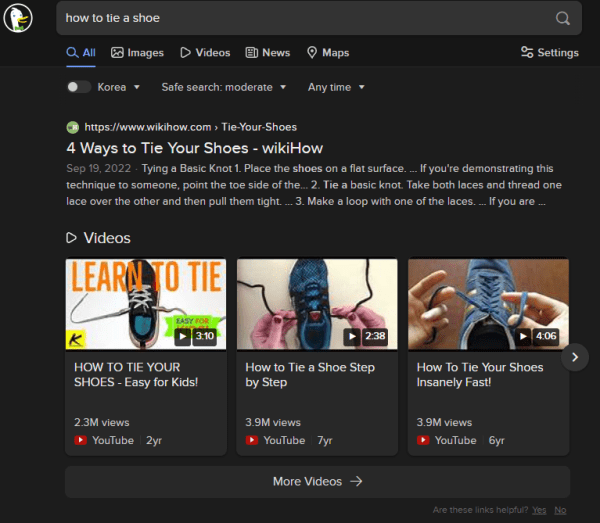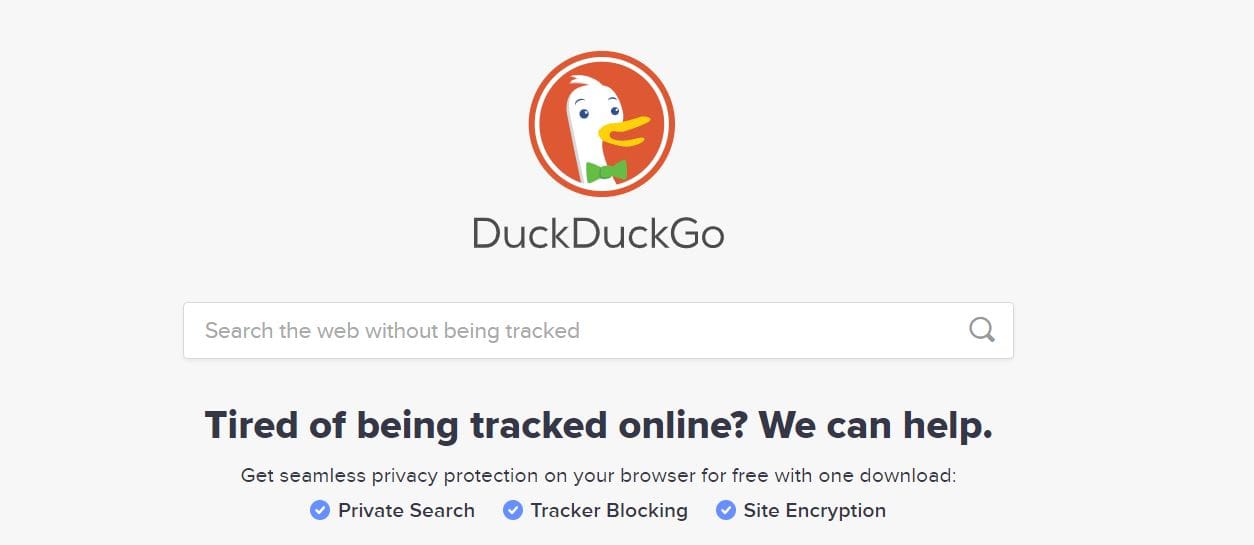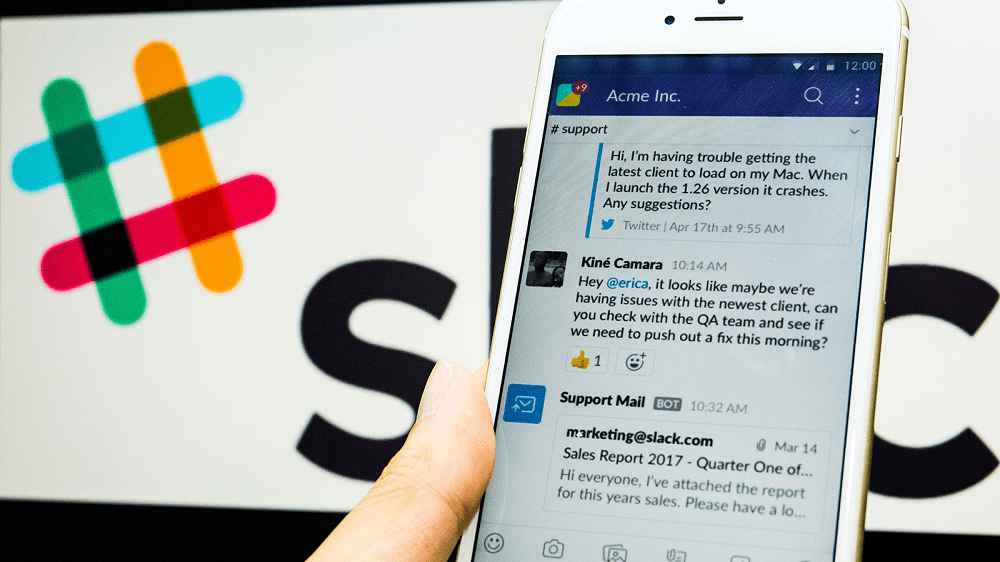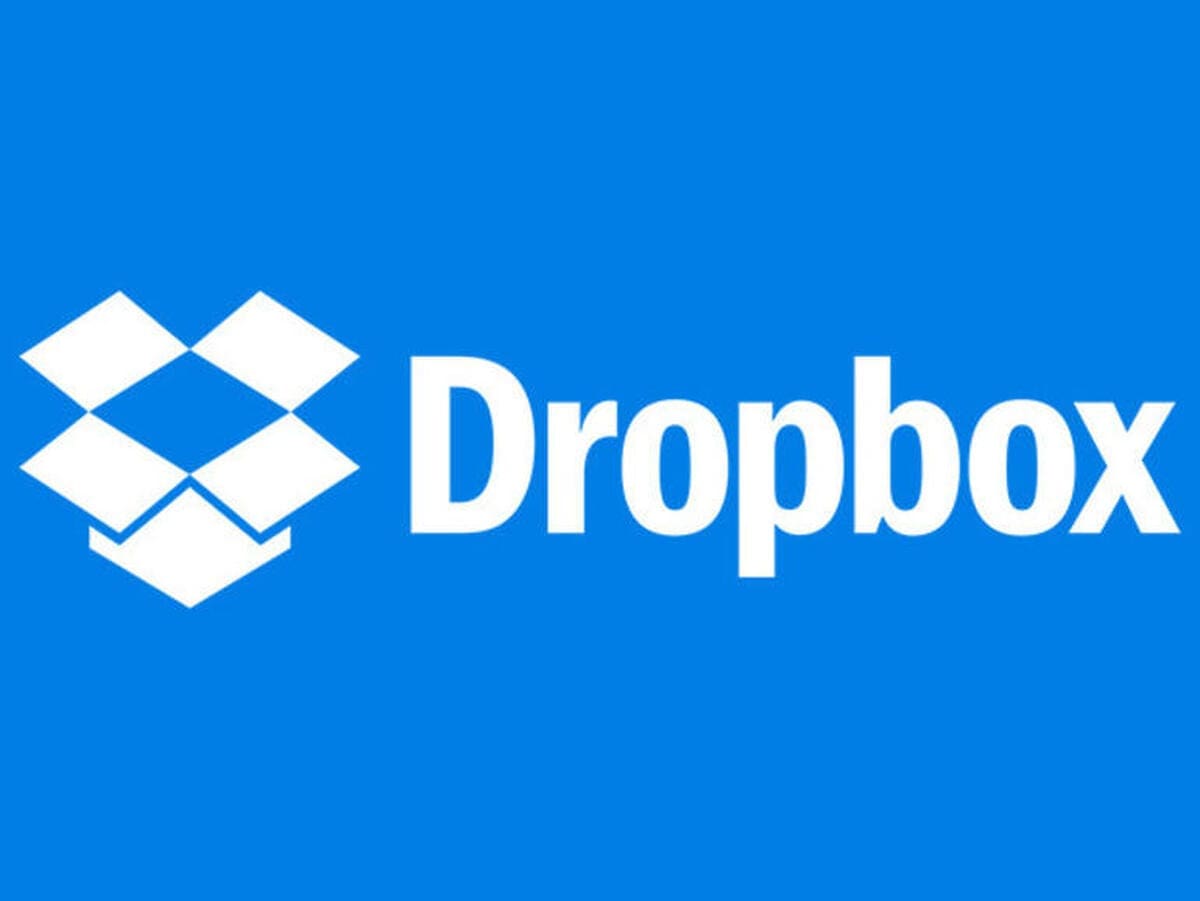DuckDuckGo is an underrated search engine and browser that puts consumer privacy and security first. If you’ve noticed a new Google feature that keeps prompting you to sign in to its services on various websites. You may have felt the same way as us. It’s intrusive, not user-friendly, and pretty annoying all around. If you’re on your phone, the pop-up prompt might take up half of your screen. Find out more about how DuckDuckGo plans to block these pop-ups. And if the service is right for you.
Contents
Related Reading:
- 10 Best Privacy Advantages to Using DuckDuckGo
- 10 Best Deep Web Search Engines to Access Concealed Information
- 5 Ways to Browse the Internet Anonymously
- Stop Facebook from Tracking Your Internet Activity
What Is DuckDuckGo?
DuckDuckGo started as an alternative search engine to Google. Its unique selling point was that it didn’t harvest or use any of your data to create more personalized results. Its main competitor, Google, uses your data in many ways to create a profile about you so it can sell more services. Google is often considered the world’s largest advertising company. Data can help it increase profits and sell more products and services to the public.
DuckDuckGo has since expanded its reach to become a legitimate competitor to both Google and Bing. There’s been a growing movement in today’s digital environment that heavily emphasizes protecting consumer privacy, with major companies like Apple trying to help the public (although perhaps there’s more it can do). With this new trend, DuckDuckGo emerged as a service that backs up what it says. It doesn’t employ any trackers, which means that each time you search, you get the answer to your query, and the platform doesn’t track your search history, websites visited, or anything else. This means you effectively get a “clean slate” whenever you search for something.
Some may enjoy Google more due to its personalization, but you might be surprised to find out just how much it knows about you. Having personalized search results, product recommendations, and highlighted websites can be great, but you have to question how much Google knows if it can produce highly individual results every time.
DuckDuckGo News: Blocking Google’s Pop-Up
You may have seen a slew of Google pop-ups across the web urging you to log in to Google. If the website allows users to register and log in with Google, the pop-up will show. It’s an excellent way for Google to gather your data, as it can see which websites you’re visiting and logging into so that it can use trackers to recommend you similar content or related products. Google can probably do that if you use Chrome or any other Google-linked service, but this new update is pretty intrusive on the users’ end.
So far, there isn’t a way to block it conventionally. There’s no option you can toggle; Google doesn’t even allow you to stop these pop-ups. But in December, DuckDuckGo released a new feature called Google Sign-In Pop-Up Protection, which couldn’t be any more specific. If you use the DuckDuckGo browser or extension, it’s on by default, so you don’t have to fiddle with any settings. Peter Dolanjski, the Director of Product for DuckDuckGo, had this to say about Google’s new pop-ups:
The popups are invasive, annoying and they undermine user privacy. Google is employing a dark pattern by pushing you to sign in when you might not have otherwise. When you do, Google is is tracking what you do on those websites and linking it to your identity.
We believe google is pitching the popups to these websites as a win-win. If they can get more users to sign in, it opens up more data collection both for Google and publishers, and it lets Google better target users with ads.
Although the Google Sign-In function isn’t anything new, the pop-ups are. This new and more aggressive behavior from Google might mean it’s trying to spread its influence in the data harvesting realm even further.
Is DuckDuckGo Worth it?
Search Engine

DuckDuckGo was originally a search engine and browser extension. In its infancy, it had a lot of promise but didn’t feel as natural to use as Google. Perhaps that was because of its slight differences in layout or because we’re just so used to Google’s personalized recommendations and multimedia content suggestions. Initially, there weren’t any rich media cards, thumbnails for image or video content, or many filters. However, if you go on DuckDuckGo today, it’s almost identical to Google’s format.
Most important is the quality of suggestions you receive when searching for something. When you search for something in DuckDuckGo, you get the first and most relevant web link and rich media like video suggestions and image results. The standout thing about the search engine is that it doesn’t have any ads, which is a breath of fresh air in today’s digital landscape.
Browser
DuckDuckGo’s Browser uses the search engine as the default option, of course, and shows you specific data, like how many trackers it’s blocked on your visit to a website. It has features like a way to save your passwords securely and block trackers in any emails you send, a feature that DuckDuckGo has worked on for years. If you want to block Google’s annoying pop-ups, then you’ll need the DuckDuckGo browser.
It’s not always easy to transition from one browser to a new one as you get used to the layout, functions, and aesthetics. But what’s great about DuckDuckGo’s browser is that it’s very minimalistic and keeps the familiar feel of the Chrome browser while focusing on your privacy and protection.
Conclusion
In terms of DuckDuckGo news, being able to block pop-ups isn’t groundbreaking, but appreciated nonetheless. If you haven’t tried DuckDuckGo yet, we will encourage you to give it a go, at least. It’s made plenty of improvements over the years and is almost indistinguishable from Google’s search engine. If not, you could give the browser a go to boost your online privacy and keep some of your information safe with you.




Have used Duck Duck go for a year or two now with very good result in relation to advertising and their prevention but this morning I have had so many pop-ups and no idea why.